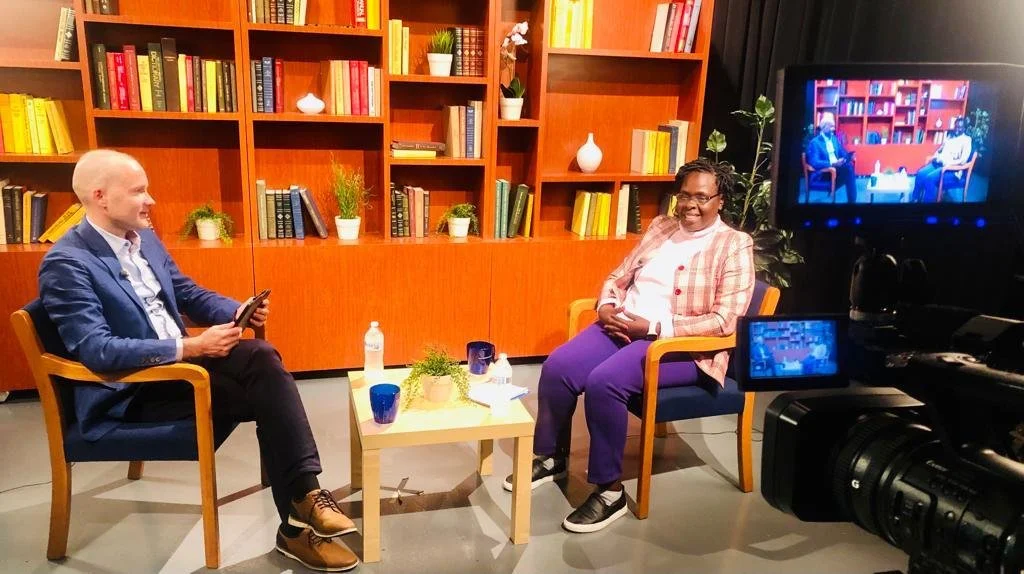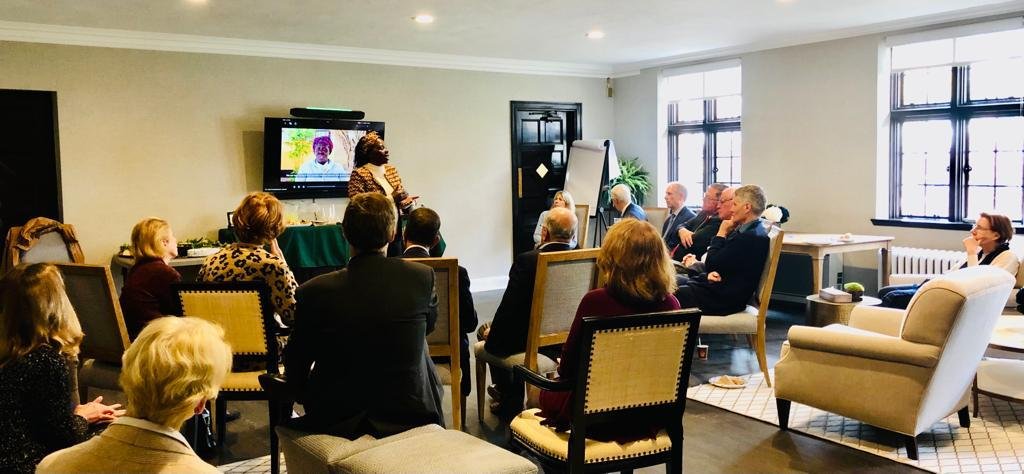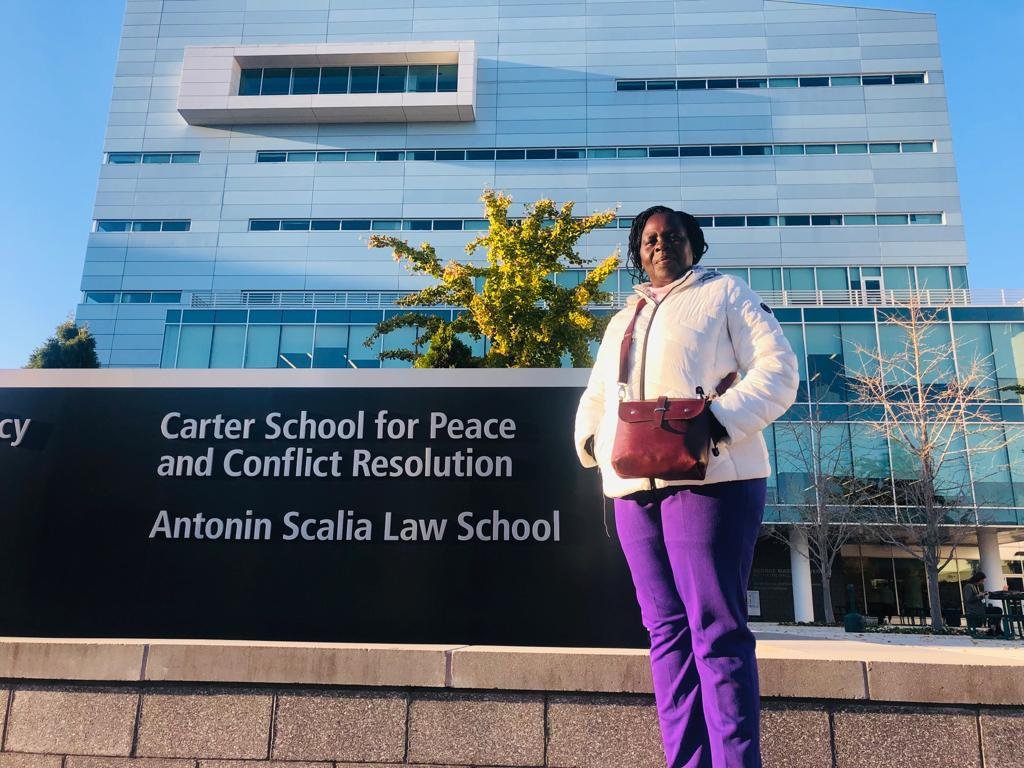By: Merisa Mattix and Cameron Cassar
On Friday, November 12th, MHCR was honored to host one of our Insider-Reconciler Fellows, Dr. Tecla Namachanja Wanjala, at the Carter School on GMU’s Arlington campus for our first in-person event of the semester.. The event gave Carter School students the opportunity to meet a peacebuilding practitioner doing groundbreaking work in post-conflict areas. Dr. Wanjala came to share her wisdom with students as she was in town to promote her work with MHCR as well as raise funds for her organization, the Shalom Centre for Counselling & Development. The Centre is leading amazing and powerful community healing work within the Mt. Elgon Region of Kenya with the support of MHCR.
MHCR Director Antti Pentikainen with Dr. Tecla Namachanja Wanjala
Dr. Wanjala has been one of the most notable peacebuilding practitioners within Kenya for over 30 years. She has received numerous awards such as the 2019 Peacebuilder of the Year from Eastern Mennonite University (EMU) and a Richard von Weizsäcker Fellowship from Robert Bosch Academy. Most notably, she was also a nominee for the 2005 Nobel Peace Prize due to her success in the fields of transitional justice, conflict transformation, and trauma healing within the Kenyan context. Before she formed the Shalom Centre and started work with MHCR, she served as the Chief of Party for the Peace in East and Central Africa Program and as Chairperson of the Kenya Truth and Reconciliation Commission of Kenya which convened to address the mass violence that occurred from 2007 to 2008 surrounding the Kenyan elections.
Unfortunately, the recommendations given by the Kenya Truth and Reconciliation Commission have not been approved for action by the parliament in Kenya. Disappointed by the lack of action by Kenya’s government, Dr. Wanjala, along with others, founded the Shalom Centre for Counseling and Development to address the needs of communities still suffering from trauma after post-election and military violence. To address these needs, they have designed a circle program to provide “safe and trusted spaces for healing” for these affected communities and individuals .
Dr. Tecla Namachanja Wanjala addressing the attendees
At the event, Tecla explained the ability of these circles to the healing of these communities and to the trauma healing of the individuals who participate in them. Dr. Wanjala developed these circles in collaboration with EMU (where she received her Ph.D.), called Spaces for Trauma Awareness and Healing. With permission from EMU, Tecla employed local artists to adapt the program to be accessible for those in her circles who may be illiterate as well as to incorporate cultural traditions and forms of reconciliation. The circles use healing methods including singing, dancing, and use pictures and symbols that are familiar and comfortable.
“Trauma is a wound that has to be cleaned so that it can be truly healed
”
Dr. Wanjala explained the deep healing process of grieving the losses and expressing the hurt these communities have endured. She emphasized that giving perpetrators this opportunity is also imperative as violence is often created out of trauma. The circles have saved many lives as they have reversed feelings of hatred that would have led to violence as a form of revenge. There were many stories told of forgiveness being given and lives being changed because of this work as the Shalom Center’s short film “Healing the Mountain” features here.
The students attending the event listened intently and asked questions leading to Dr. Wanjala expressing what she feels is the most impactful part of her work, trauma healing. Using the metaphor of a physical wound, she illustrated the importance of addressing the violence in Kenya just as it is necessary to clean and dress a cut or injury so that it can fully and properly heal. The healing process includes space for mourning, the sharing of stories, singing, and the incorporation of religious themes. The circles have provided this healing of trauma not just on the community level, but for many at the individual level as attendees have told their stories, embraced one another, and even come together to reconcile with other communities. The work is truly transforming Kenya's Mt. Elgon region with each individual who participates.
MHCR was honored to host an event full of reflection on the beauty of the healing nature of reconciliation processes and to learn from the work Dr. Wanjala is leading at the Shalom Centre. To learn more about our partnership with Dr. Wanjala, you can read her feature in the MHCR annual report here and if you would like to hear her tell her story, you can listen to her episode “A Calling to Heal on the MHCR-produced ThinkPeace Podcast here.
Dr. Tecla Namachanja Wanjala poses in front of the Carter School



